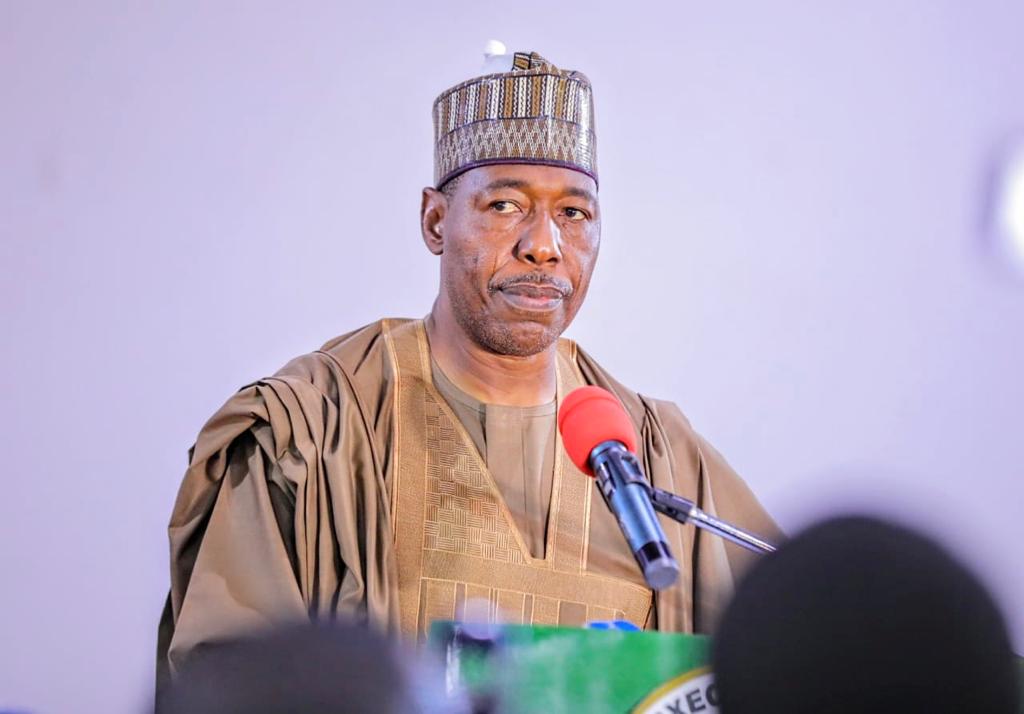
The governor also said his administration’s frequent distribution of food palliatives was necessitated by the need to strike a balance between addressing the immediate needs of the people affected by the Boko Haram insurgency and laying the groundwork for a lasting change.
Zulum disclosed this during a chat with newsmen while supervising the distribution of food palliative to the people at Gajiram, Nganzai Local Government Area, on Saturday.
“We are not creating dependency among the people. People should take note that what we are doing is necessary. We only give food items in places extremely affected by insurgency and gradually, we are transiting out,” Zulum said.
“While food palliatives are distributed to vulnerable people most affected by the over-one-decade crisis, remarkable development has been achieved in all the critical sectors such as healthcare, education, security and infrastructure in Borno State”, Zulum maintained.
“So people should understand that the palliative distribution was to salvage communities whose sources of livelihood were cut off due to the activities of Boko Haram insurgents,” he stressed.
Zulum emphasised the need to establish a sustainable foundation for long-term development rather than relying on short-term solutions like palliative distribution.
The governor supervised the distribution of food and non-food items and N25m cash to over 25,000 families comprising 10,000 males and 15,000 females.
Each of the male heads of households received a bag of rice and a bag of maize, while about 15,000 families each received one wrapper and N5,000 cash.
Zulum thanked the federal government for allocating to the state about 15,000 bags of rice through the North-East Development Commission.





